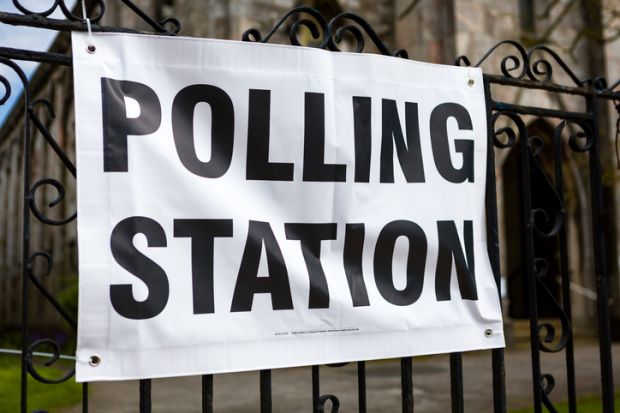General election manifestos have contained some “very clear omissions” on higher education, with none of the major parties “brave enough to say that tuition fees might need to go up” in England, an event heard.
Claire Crawford, an associate professor of economics at UCL, told an event organised by educational charity the Sutton Trust that the major parties had failed to answer questions about higher education funding despite a mounting crisis in the sector, and had been “generally quite light on specific commitments” ahead of polling day on 4 July.
“Labour and indeed the Liberal Democrats both emphasised that something should be done, but it was unclear exactly what that would look like. [There was] certainly no one brave enough to say the tuition fees might need to go up. I think we can all expect another independent review spelling out a set of unappealing choices in the coming months in terms of how to deal with that,” Dr Crawford told the event, which was chaired by former Conservative education secretary Justine Greening.
Dr Crawford cautioned that a commitment made by the Conservatives to scrap “poor-quality degrees” would “disproportionately” impact those from deprived socio-economic backgrounds.
Carl Cullinane, director of research and policy at the Sutton Trust, agreed that the major parties had been largely “silent” on universities, and warned that the longer political parties ignored the issues facing the sector, the more challenging they would become.
“Parties can kick some of these issues down the road and past the election. They’re not willing to deal with it now, but whoever is in power will have to deal with these issues in a month’s time. If you do nothing, a lot of the trends are going to get worse,” he said.
“The issue for students in terms of cost of living is not going to go away. So I think the rubber is about to hit the road on a lot of these issues.”
Meanwhile, the lack of detail on higher education by Labour and the Conservatives in their manifestos meant that “we are left guessing” about the future of universities, according to Christine Farquharson, associate director at the Institute for Fiscal Studies.
There have been “no further details” on specific policies “for a sector that has seen its teaching resources decrease almost back to the point that they were before the tuition fee cap was trebled”, she said.
“We heard a lot about reviews and strategies and grand ambitions, but we haven’t really seen the sense of the big spending commitments, the overall path of the budget of these public services and, in some areas where we know there are pressures and challenges ahead, we know nothing at all about how the parties would address them.”
Register to continue
Why register?
- Registration is free and only takes a moment
- Once registered, you can read 3 articles a month
- Sign up for our newsletter
Subscribe
Or subscribe for unlimited access to:
- Unlimited access to news, views, insights & reviews
- Digital editions
- Digital access to THE’s university and college rankings analysis
Already registered or a current subscriber? Login








